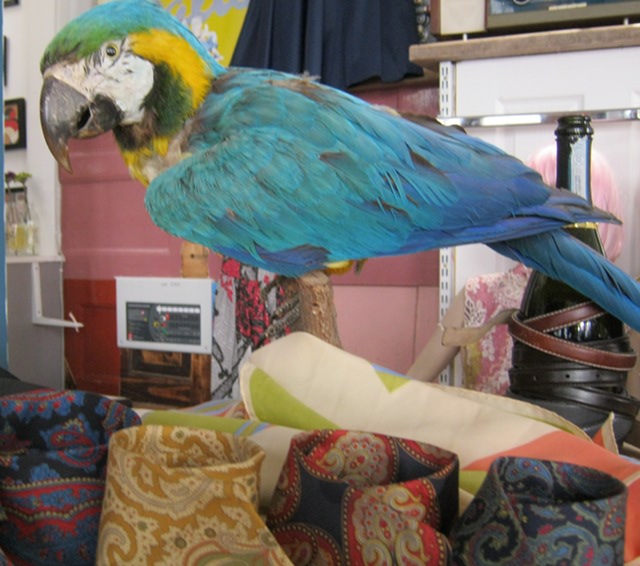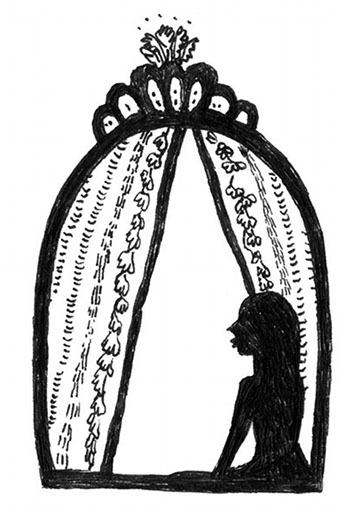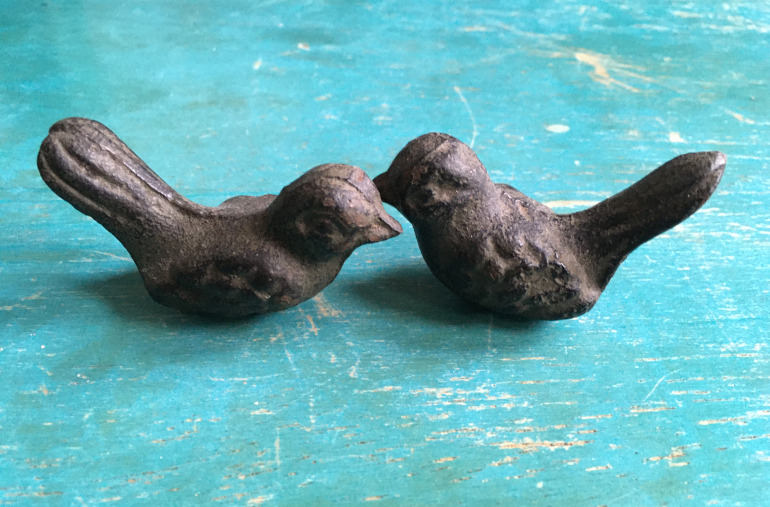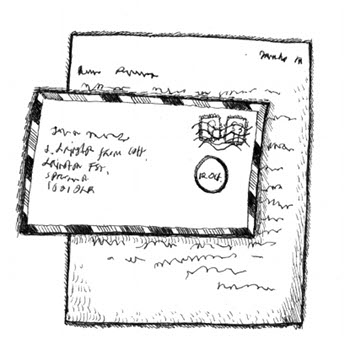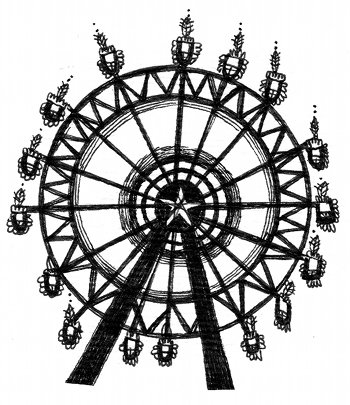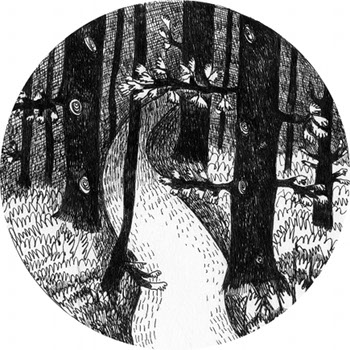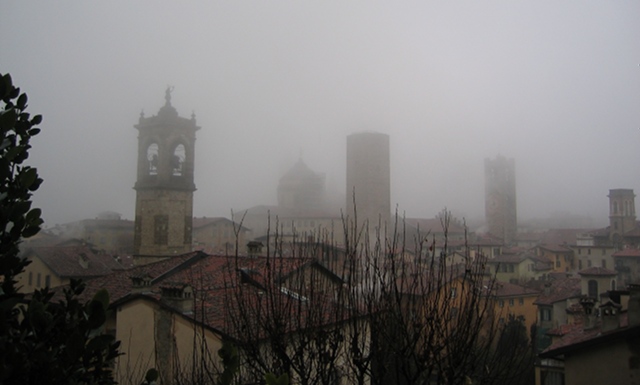 Bergamo is a town that feels made up – almost too dreamy to be true. Located in the Lombardy region of northern Italy between Milan and Venice, its ancient medieval cobblestone streets wind through lanes that could lead anywhere, to another land even…
Bergamo is a town that feels made up – almost too dreamy to be true. Located in the Lombardy region of northern Italy between Milan and Venice, its ancient medieval cobblestone streets wind through lanes that could lead anywhere, to another land even…
We arrive on a late winter’s day when curling mist isolates the town in swathes of white.
“You have to imagine,” our guide keeps saying, “You have to imagine, from here you usually can see the mountains – such extraordinary views.”
Above Città Alta, the upper town, stands a ruined fortress surrounded by exquisite memorial gardens, the Parco Della Rocca, which, we imagine as instructed, will be filled with somnolent Italians in summertime, the scent of the eucalyptus trees hanging heavy in the air.
The ancient streets below host churches built in gratitude for the townspeople’s survival of the 16th-century plague epidemic that ravaged northern Italy, as immortalised in Alessandro Manzoni’s novel The Betrothed.
One of the finest of these buildings is the pink, white and black marble Santa Maria Maggiore basilica, guarded by two stone lions. The interior is an explosion of Baroque ornamentation, interspersed with statues and tapestries telling the story of Our Lady.
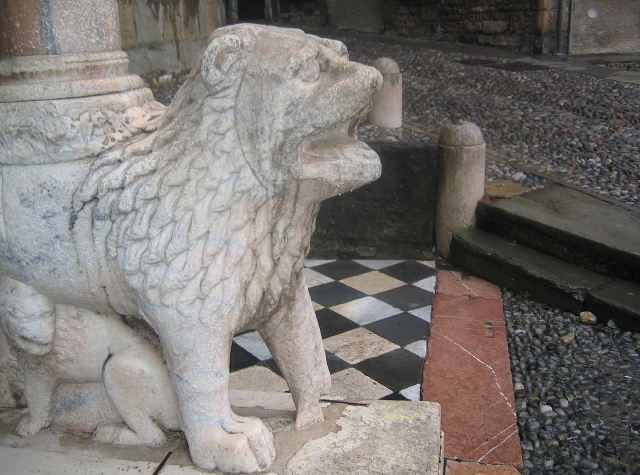
“You have to imagine,” our guide tells us, “that most people could not read in the 13th century. So the stories of the bible were told through pictures, in embroideries, tapestries and frescos.”
A grand example of this is the tomb of composer Gaetano Donizetti, with carvings of seven crying children breaking instruments, representing the notes that would no longer wish to sing now that their master was dead.
Every surface of the basilica’s interior is crammed with symbolism, mythology and poetry, a visual testament to the many writers who’ve fallen in love with this small town over the centuries. Visitors have included 14th-century Italian poet Francesco Petrarch, 19th-century French writer Stendhal, Hermann Hesse, winner of the 1946 Nobel Prize in Literature, and, of course, Hemmingway, who seems to have spent time in anywhere worth visiting in Europe.
We eat lunch at Restaurant Giopì e la Margì, where the chef serves up traditional dishes such as minced meats wrapped in cabbage, polenta with anchovy or salami, thin slices of cured veal, oven-baked venison, and, most delicious of all, wild mushrooms layered with fresh cream and translucent leaves of the thinnest pasta.
We spend the night at the Mercure in the Città Basso, the lower town, and in the morning I draw back my curtains to see the pinnacles of towers emerging from the mist-like clouds, ochre-coloured sandstone house stacked against the hills.
Land of the angels
After breakfast we set off for Azienda Agricola Tenuta Degli Angeli, quite literally Land of the Angels. Set on a steep mountainside rising from the Calepio Valley, this vineyard is a family business producing wine, balsamic vinegar and olive oil.
The vineyard was started by Pierangelo Testa in 1984 and has since passed into the care of his daughters Roberta, Laura and Maria. Roberta leads us through the vineyard past the twisting trunks of olive trees and crab apple trees, where vast field mushrooms spring from the thick, green grass hinting at the fertility of the place.
It seems like an idyllic place to spend an afternoon, whether you’re helping to pick fruit or sitting on a bench admiring the views and capturing a few thoughts on paper.
Once we’ve admired the scenery, Roberto takes us into the wine cellar to see the stacks of wine bottles, then into the storage area for balsamic vinegar. A rich aroma like baked raisins fills the air, and here and there the syrup has oozed from the barrels down the stone walls leaving a sticky black residue.
“You can really feel the smell of the vinegar in summer,” Roberta says, showing us the barrels corked when she and each of her siblings were born.
“My father gave me the barrels for my year when I married.”
It may seem like an unromantic wedding gift, but when she lets us taste a teaspoonful of the first balsamic vinegar her father made, all of 36 years ago, it makes perfect sense. Layers of flavour spreads over my tongue, sweet and savoury at the same time, rich and thick like the finest honey with a hint of fruitcake, astonishing in its complexity and nothing like the vinegar we use as salad dressing in the UK.
At lunchtime we eat a simple yet divine meal of fresh bread, grana cheese, olives, nutty green olive oil, chestnut honey, and jams made from grapes and citronella. It’s clear with each mouthful that quality takes precedence over quantity here.
“We prefer to stay small,” Roberto says. “Our main income is from making cement manufacturing, so we can concentrate on excellence with the vinegar.”
It’s an interesting thought – this family have found a way to balance their lives by nurturing vines on one side and manufacturing cement on the other, just as so many of us exist sandwiched somewhere between creativity and pragmatism, as though one cannot survive without the other.
But this is too heavy a contemplation for such a delicious meal – beyond which church towers and donkeys, a giant bear-like dog and countless twisted olive trees loom out of the dispersing mist, and the sky is just beginning to turn a celestial blue.
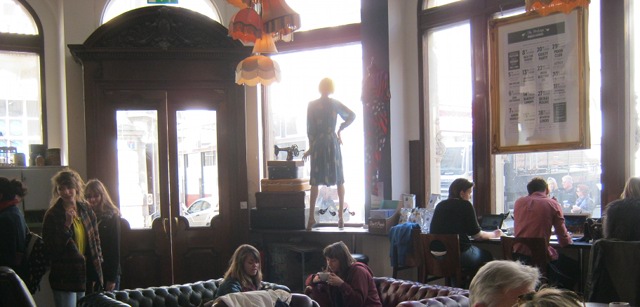 Today is the day of the Remember Me To The Bees book launch – the party I’ve been banging on about for, well, it feels like months!
Today is the day of the Remember Me To The Bees book launch – the party I’ve been banging on about for, well, it feels like months!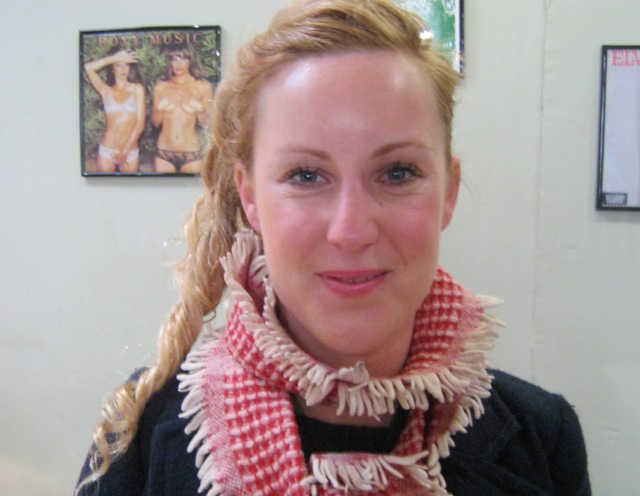 The Birdcage is hosting an exhibition of Louise’s artwork for one night only, so make sure you take a look. Actually, I don’t think you’ll be able to miss it! In case you were wondering, the pic above was taken at the Birdcage…
The Birdcage is hosting an exhibition of Louise’s artwork for one night only, so make sure you take a look. Actually, I don’t think you’ll be able to miss it! In case you were wondering, the pic above was taken at the Birdcage…

